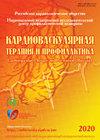研究成人疫苗接种问题的定性研究方法:相关性与设计
Q3 Social Sciences
引用次数: 0
摘要
疫苗接种是在人口层面控制传染病的有效工具。易受控制传染病影响的成年人口比例正在增加,这一点从年龄大于 18 岁的人口中爆发的疾病中可以得到证实。采用定性研究方法探讨影响疫苗接种行为的因素。开发并介绍一种定性研究设计,以研究成人接种疫苗的障碍和驱动因素。为在俄罗斯三个地区开展研究,选择并调整了世界卫生组织(WHO)的 "免疫计划定制"(TIP)方法、由世界卫生组织开发并在多个国家用于研究疫苗接种问题的 "能力-机会-动机-行为"(COM-B)工具以及 "快速评估过程 "方法。选择的定性方法是焦点小组和对成年人和医务工作者两个目标群体的深入个人访谈。将采用有目的的抽样方法来选择年龄≥18 岁的参与者。定性研究设计包括以下步骤:选择目标人群、制定讨论计划、培训分析小组、在目标人群中测试方法和问题、收集和分析数据、制定建议和干预措施。定性研究方法是确定疫苗接种障碍和驱动因素的首选方法。研究人员、公共卫生专业人员和决策者可利用所开发和介绍的定性研究设计来研究成年人的疫苗接种行为。本文章由计算机程序翻译,如有差异,请以英文原文为准。
Qualitative research methods in studying the problems of adult population vaccination: relevance and design
Vaccination is an effective tool to control infectious diseases at the population level. There is an increase in the proportion of the adult population vulnerable to controlled infections, which is confirmed by the emergence of disease outbreaks involving population aged >18 years. Qualitative research methods are used to explore factors influencing vaccination behavior.Aim. To develop and present a qualitative study design to study barriers and drivers for vaccination in adults.Material and methods. The World Health Organization (WHO) approach of Tailoring Immunization Programs (TIP), Capability-Opportunity-Motivation-Behavior (COM-B) tool, developed by the WHO and adapted in several countries to study vaccination issues, and the Rapid Assessment Process method were chosen and adapted for conducting a study in three Russian regions. The qualitative methods selected are focus groups and in-depth personal interviews in two target groups of adults and medical workers. A purposive sampling method will be used to select population participants aged ≥18 years.Results. A qualitative research design was developed, including the following steps: selecting target populations, developing a discussion plan, training the analytical group, testing the methodology and questions in the target groups, collecting and analyzing data, developing recommendations and interventions.Conclusion. Qualitative research methods are preferable for identifying vaccination barriers and drivers. Based on the results obtained, an educational program for health workers will be developed, including communicating approaches to be used with patients when discussing vaccination matters.The qualitative research design developed and presented can be used by researchers, public health professionals, and decision-makers to study vaccination behavior among adults.
求助全文
通过发布文献求助,成功后即可免费获取论文全文。
去求助
来源期刊

Cardiovascular Therapy and Prevention
Medicine-Cardiology and Cardiovascular Medicine
CiteScore
1.70
自引率
0.00%
发文量
155
审稿时长
6-12 weeks
期刊介绍:
The most important objectives of the journal are: the generalization of scientific and practical achievements in the field of cardiology, increasing scientific and practical skills of cardiologists.
The scientific concept of publication does the publication of modern achievements in the field of epidemiology, prevention and treatment of cardiovascular diseases, the results of research, national and international clinical trials.
For publication in the journal are invited both domestic and foreign scientists and clinicians working in the field of cardiology, as well as doctors of other specialties.
The magazine covers various issues in cardiology and related specialties. Each issue is prepared by Executive editor of the issue, a respected specialist in the field of epidemiology, prevention and treatment of cardiovascular diseases.
The main focus of the publication — scientific articles on original research, the pharmacotherapy of cardiovascular disease, new diagnostic methods.
All members of the group of authors should meet all four criteria of authorship set forth in the ICMJE recommendations: 1) concept and design development or data analysis and interpretation, and 2) manuscript justification or verification of critical intellectual content, and 3) final approval for publication of the manuscript, and 4) consent to be responsible for all aspects of the work, and assume that issues relating to the thoroughness and diligent execution of any part of the study submitted are duly investigated and resolved.
Great importance the editors attached to the preparation of scientific papers by groups of authors at a high level, literacy, authors, and their ownership information, availability of research results not only to colleagues in Russia, but also abroad.
 求助内容:
求助内容: 应助结果提醒方式:
应助结果提醒方式:


